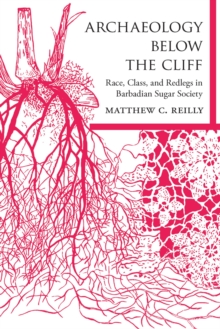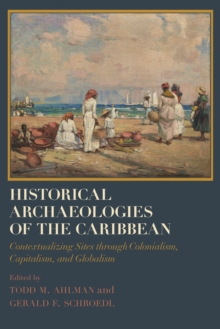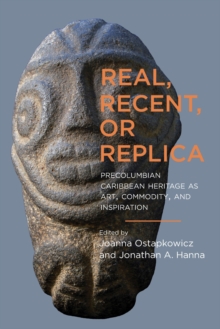
Surviving Spanish Conquest : Indian Fight, Flight, and Cultural Transformation in Hispaniola and Puerto Rico Paperback / softback
by Karen F. Anderson-Cordova
Part of the Caribbean Archaeology and Ethnohistory series
Paperback / softback
Description
Reveals the transformation that occurred in Indian communities during the Spanish conquest of Hispaniola and Puerto Rico from 1492 to 1550 In Surviving Spanish Conquest: Indian Fight, Flight, and Cultural Transformation in Hispaniola and Puerto Rico, Karen F. Anderson-CÓrdova draws on archaeological, historical, and ethnohistorical sources to elucidate the impacts of sixteenth-century Spanish conquest and colonization on indigenous peoples in the Greater Antilles.
Moving beyond the conventional narratives of the quick demise of the native populations because of forced labor and the spread of Old World diseases, this book shows the complexity of the initial exchange between the Old and New Worlds and examines the myriad ways the indigenous peoples responded to Spanish colonization. Focusing on Hispaniola and Puerto Rico, the first Caribbean islands to be conquered and colonized by the Spanish, Anderson-CÓrdova explains Indian sociocultural transformation within the context of two specific processes, out-migration and in-migration, highlighting how population shifts contributed to the diversification of peoples.
For example, as the growing presence of “foreign” Indians from other areas of the Caribbean complicated the variety of responses by Indian groups, her investigation reveals that Indians who were subjected to slavery, or the “encomienda system,” accommodated and absorbed many Spanish customs, yet resumed their own rituals when allowed to return to their villages.
Other Indians fled in response to the arrival of the Spanish. The culmination of years of research, Surviving Spanish Conquest deftly incorporates archaeological investigations at contact sites copious use of archival materials, and anthropological assessments of the contact period in the Caribbean.
Ultimately, understanding the processes of Indian-Spanish interaction in the Caribbean enhances comprehension of colonization in many other parts of the world. Anderson-CÓrdova concludes with a discussion regarding the resurgence of interest in the TaÍno people and their culture, especially of individuals who self-identify as TaÍno.
This volume provides a wealth of insight to historians, anthropologists, archaeologists, and those interested in early cultures in contact.
Information
-
Available to Order - This title is available to order, with delivery expected within 2 weeks
- Format:Paperback / softback
- Pages:272 pages, 7 B&W figures, 22 tables, 7 maps
- Publisher:The University of Alabama Press
- Publication Date:30/06/2022
- Category:
- ISBN:9780817360580
Information
-
Available to Order - This title is available to order, with delivery expected within 2 weeks
- Format:Paperback / softback
- Pages:272 pages, 7 B&W figures, 22 tables, 7 maps
- Publisher:The University of Alabama Press
- Publication Date:30/06/2022
- Category:
- ISBN:9780817360580










